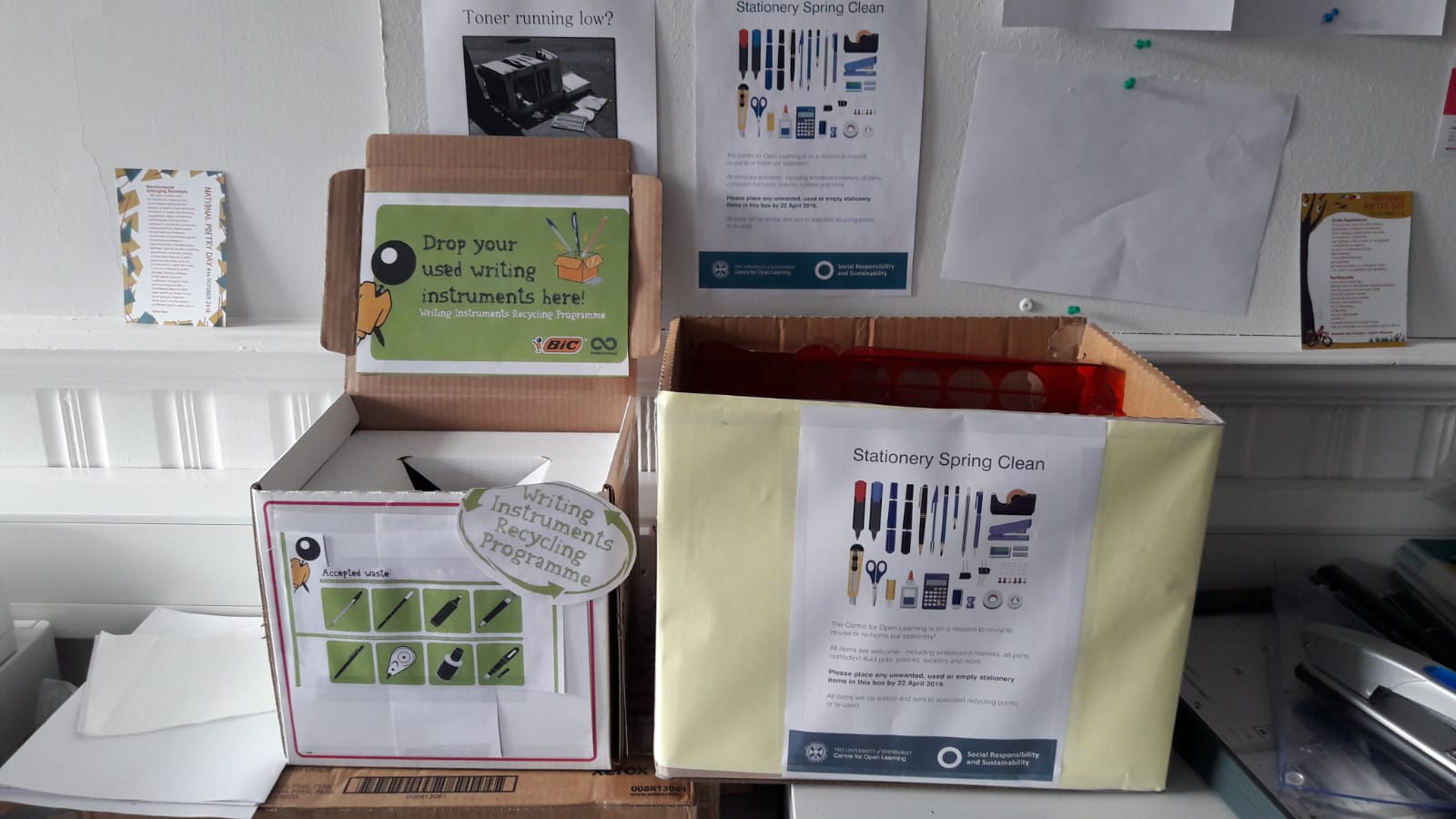
In this final post for April’s ‘Sustainability in the curriculum’ series, Peter Buckley, Teaching Fellow in English for Academic Purposes at English Language Education, shares his journey with sustainability at the University of Edinburgh as a teacher with no ‘official’ background in sustainability…
The Sustainability Development Goals (SDGs)
Other blog posts in this Teaching Matters series have introduced the Sustainability Development Goals (SDGs) which inform the University of Edinburgh’s ‘Strategy 2030’, guiding the university through the next decade and beyond. Integrating and embedding the SDGs more formally into university curricula will build on the existing knowledge base that many students leave school with, and allow them to develop this further, applying it to their degree programmes in novel and innovative ways. This, in turn, will hopefully inform subsequent developments in the curricula. Catherine Dunn and Jack Reed’s recent Teaching Matters blog post praised and critiqued the SDGs in relation to their studies. I am going to briefly describe how I have tried to incorporate them into my teaching in the context of my own sustainability ‘journey’ here at the University of Edinburgh.
My sustainability ‘journey’
I have always had a personal interest in sustainability and have become more involved in various initiatives at the University of Edinburgh over the last few years. I was first made aware of the Department for Social Responsibility and Sustainability (SRS) when I completed their 30-minute online ‘Be Sustainable’ course for staff. Through SRS, I then became an Active Travel Champion (organised by Sustrans) which led to greater awareness of events happening in and around Edinburgh as well as access to funded courses (e.g. Cycle Leader, Jog Leader, First Aid). In 2018, I started a lunchtime jogging group for staff and students, which introduced some students to jogging for the first time. Related to health and wellbeing, I also set up a Friday morning coffee break, giving members of staff an opportunity to meet and chat at the end of the week. This proved quite popular and some colleagues have continued this in the virtual world! Between October 2018 and April 2019, I completed SRS’s ‘Be Sustainable – Advanced’ course. This course was very well-organised and was great for networking with like-minded individuals across campus. The course involves completion of a personal project and I chose to investigate the feasibility of recycling stationery and writing equipment through a company called Terracycle. This project contributed toward the Centre for Open Learning (COL) receiving the Gold Sustainability Award. Although many of the campus projects and ideas (e.g. Sustainability noticeboards, recycling coffee grounds) are currently on hold, two of my goals for this year were to embed the SDGs explicitly in my teaching, and make students and colleagues appreciate that sustainability is more than recycling, and turning off lights! Despite the current lockdown, I can still go some way to achieve these goals.

My teaching context and sustainability

In my role at the University of Edinburgh, I teach academic English language skills to students whose first language is not English. I have found that many of my students have not heard of the SDGs and are unaware of the underlying issues (such as recycling, plastic pollution, and climate change) because they are not in the public eye in their home countries. As part of the written assessment on our in-house Academic and General English (AGE) course, students write source-based essays. For three years, instead of setting ‘generic’ tasks, these essays have tackled issues such as population growth, the impact of meat consumption on climate change, taxing the use of single-use disposable cups, and plastic pollution. These tasks require students to consider recent and relevant issues and problems, select source material, and describe and evaluate potential solutions. Each of these stages develop critical thinking skills, and use sustainability as a ‘lens’ through which to teach academic skills, advocated in Dr Sarah Ivory’s Teaching Matters blog post. With the current suspension of all face-to-face teaching, the course was adapted to be taught remotely. I had planned to incorporate a sustainability elective (3-5 hours a week) into this term’s face-to-face content, but the redesigning of the course allowed me to utilise an eBook called ‘Develop EAP: A Sustainable Academic English Skills Course’ for the Academic English ‘strand’ of the course.
The intended learning outcomes include students identifying an SDG that ‘resonates’ with them, completing a project looking at the SDG in more detail, and presenting their findings. We are currently only in week 3 of the course but feedback from students and tutors has been positive so far.
Three ‘take-away’ points
Over the last few months, there are three main messages (not necessarily ‘conclusions’) that I have taken from the various activities I have been involved with, articles I have read, and people I have spoken to:
- The SDGs are NOT exclusively related to environmental issues like recycling, saving energy, and travelling sustainably. They cover many more areas and issues such as health and well-being, gender inequality, poverty, peace, and justice.
- We should think about the ways in which we (as educational practitioners) currently refer to these issues (directly or indirectly) in our professional practice.
- We should consider ways to embed or incorporate the SDGs more explicitly (and creatively) into our work.
Clearly, sustainability means different things to different people, but I hope to continue to learn more about how it can be integrated into our lives, both on and off campus.



Good work Peter!
I have been working towards embedding these goals on internationalised courses and it’s pleasing to know that we are experiencing a cultural shift towards sustainability across the academy.